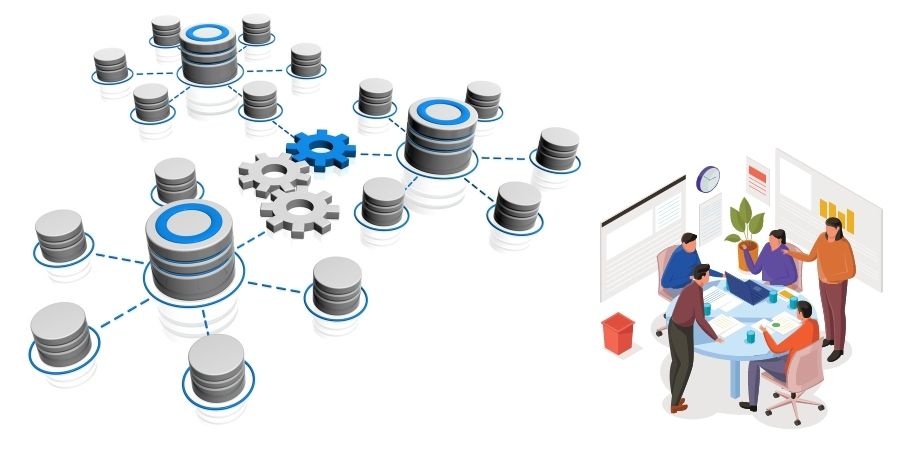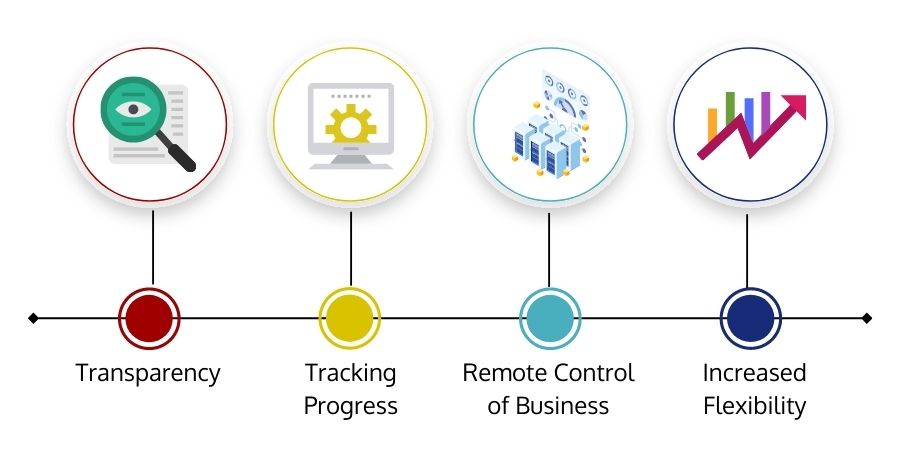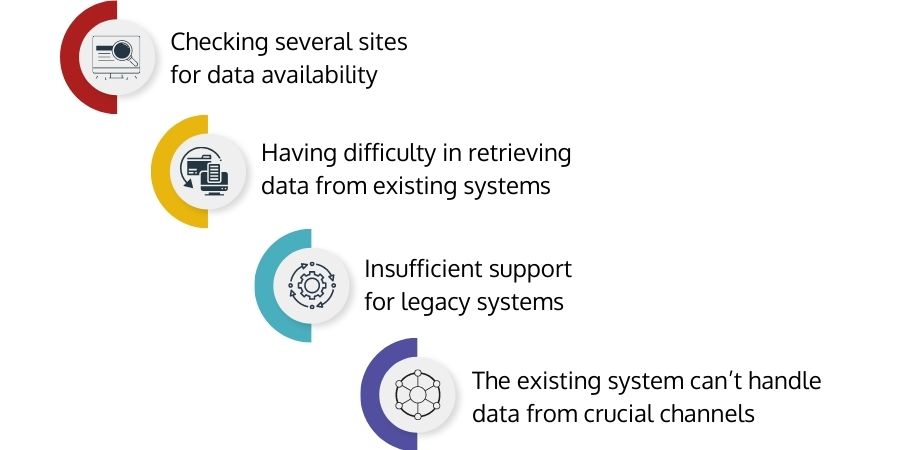
Data is a valuable asset for every business. It must be stored and maintained in absolutely perfect condition because lacking good data results in weak business decisions. To make informed decisions, businesses need to evaluate current and historical data. That’s where a database becomes important.
When you have a database, you can always obtain the data to make sound business decisions. However, managing a database is quite tricky.
This blog details the essence of a database in business while clarifying how a database can scale as your business grows.
Understanding Database
A database is a structured accumulation of data and information stored electronically in a computer system. A database is usually monitored by a database management system (DBMS). The data, the DBMS, and associated applications are referred to as a database system.
Most databases employ structured query language (SQL) for writing and querying data. Data within the correct type of database is structured in rows and columns in a series of tables to facilitate processing and data querying. Data can be easily accessed, modified, managed, regulated, and organized after this.
Who Can Use a Database?
A database administrator is responsible for establishing and managing the health of the company's databases. He can determine which employee has access to a specific database. Employees can benefit from the database.
- The E-commerce team may track transactional data regularly to inspect abnormalities.
- Healthcare professionals can access patient information for better cures.
- Suppliers can maintain or monitor inventory with a database.
- IT support team can utilize a database to track modifications made to the data or systems during the troubleshooting process.

4 Benefits of Database for Businesses
Transparency
The status of essential business activities will no longer be a surprise for employees. It becomes easier to see what is going on in the company. A database for business can lessen the complexities caused by a lack of transparency.
Tracking Progress
A company with too many activities will become overburdened and often neglect some minor activities. For example, an employee may forget about the client who needed some work done or any deal that was supposed to end. Here, a database allows a company to track its progress. For instance, if the concerned person is not available to complete a job, another employee can easily take up the job.
Remote Control of Business
As internet technology booms, remote management of businesses becomes a reality. Employees will always have access to business data. As a manager, you can easily monitor and learn business performance. You can also assign a database administrator to maintain track of your health.
Increased Flexibility
End-users could find data helpful when they obtain multiple views, optimized recommendations, and resolved search queries. For example, the sales team only sees data for their sales activity, whereas the HR team looks for personnel information. One of the advantages of a database is that all employees appreciate it as they can get all the necessary information.

Key Indicators that Your Business Needs Database
Here’re some indicators that show your business needs a database eagerly:
Checking Several Sites for Data Availability
Multiple data storage systems cause extra burdens and consume time. It complicates reporting and may even increase costs if you need to purchase more software. A database may concentrate all your data while making it easy to obtain all the required information.
Having Difficulty in Retrieving Data from Existing Systems
This indicates that the existing system is highly sophisticated. There's a strong possibility your company has extensive data but lacks the right tools to manage it. A new database may house all data and be tailored to specific business requirements.
Insufficient Support for Legacy Systems
There are a plethora of issues related to legacy infrastructure. One of the major issues is security and compliance. Newer software follows the latest cybersecurity threats and obtains important upgrades for securing your system and data. As obsolete software cannot manage these changes, it can become sluggish.
The Existing System Can’t Handle Data from Crucial Channels:
Legacy systems can’t manage data from essential sources so that a business can have data located at multiple locations. Integrating data onto a single source and virtual data channels can simplify system efficacy and improve end-user experience.
7 Reasons that Your Business Needs Database
1. Improved Metadata Management
Metadata is all the information, such as the table's name, column titles, and data types. Good metadata management makes data easier to locate and utilize. A sound database leads to improved metadata management.
Users may quickly discover the required data when everything is organized correctly without browsing multiple files. A database can also maintain metadata and keep track of changes being made in the data. This is significantly important when data is often altered while metadata is always up-to-date.
2. Improved Data Security
A database helps improve data security by providing various features making the database difficult for unauthorized access.
The database can be used for:
- User Authentication: To ensure that only authorized users access data
- Data Encryption: To prevent unauthorized individuals from accessing data.
- Control Access: To allow administrators to know which users have access to which data.
This information helps in identifying potential security breaches and taking corrective action.
3. Enhance Business Processes
Business entities collect relevant data based on systems and processes such as income growth, order details, and the quality of services and consumer goods. Businesses can use this information to improve business procedures, revenue streams, and productivity.
4. Reduce Data Redundancy
A database eliminates data redundancy and inconsistency by reducing the number of isolated files stored in the system as duplicate data. It doesn’t allow business authorities to eliminate data redundancy but provides controllability to govern data redundancy.
5. Client Retention
A database can assist in customer retention by allowing businesses to serve better customer service. They can use the database to determine which clients have purchased the most and how frequently or not bought anything recently.
This information enables businesses to contact clients to give personalization services and appreciate their efforts or to ask what they can offer as core services to bring them back. A database equips businesses with the information required to build and maintain personalized rapport with critical clients.
6. Tracking Transactions
An accounting department looks for transactions in the database to determine how much a consumer has paid, how much of that amount is consumed for sales tax, and the mode of the transaction.
This information is useful when a consumer queries a transaction or when a business requires an audit of significant cash handling processes to verify how effectively money is being counted and deposited.
7. Improved Decision Making
Making quick and correct decisions is crucial for business. A database assists firms in this regard by allowing them to analyze data swiftly. For instance, a database may generate reports and graphs displaying how data changes over time. This further helps to make informed decisions in the direction of growth.
A database allows enterprises to find the information required to improve decision quality. They can swiftly utilize the database system to conduct complex calculations while saving business time and money.

 Batoi Corporate Office
Batoi Corporate Office